5 Top-notch Chatbot Development Frameworks for Enterprises
Sanam Malhotra | 10th July 2020
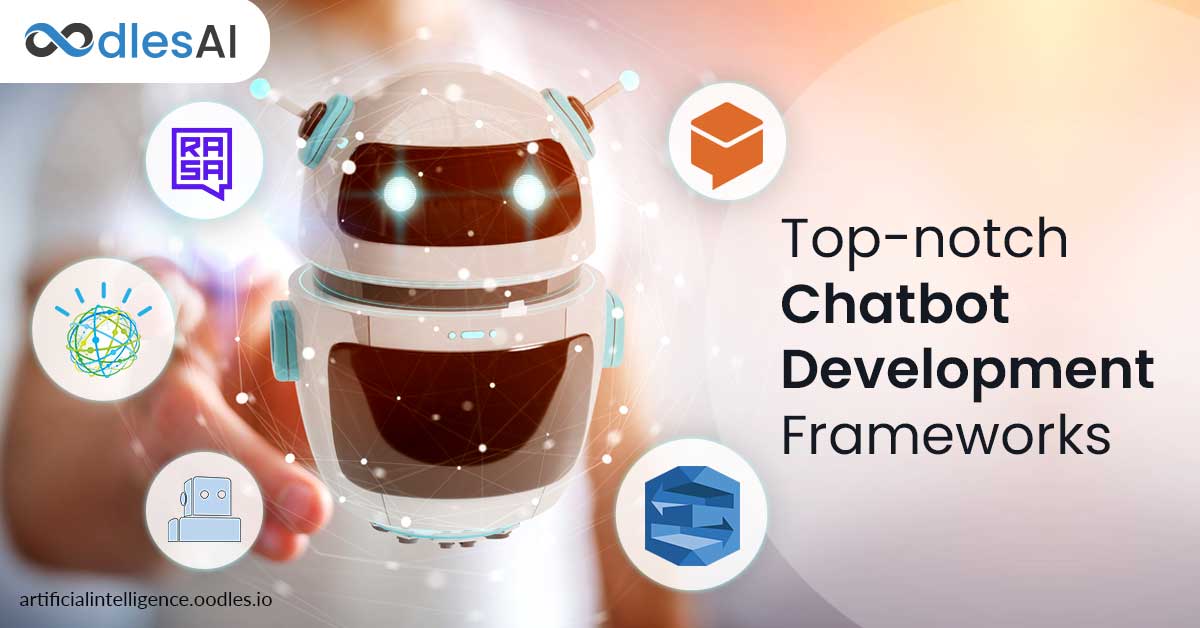
Conversational AI is arguably emerging as the most essential business strategy to streamline customer interactions and enhance experiences. It is equally essential for enterprises to discern the nuts and bolts of different chatbot development frameworks before kickstarting the development cycle.
We, at Oodles, as a well-established Chatbot Development Company, guide your pathway to building an effective and efficient conversational agent. Let’s evaluate the most preferable chatbot frameworks that we deploy to automate interactions for healthcare, eCommerce, and other businesses.
5 Most Efficient Chatbot Development Frameworks
1) DialogFlow Chatbot Development
DialogFlow is a Natural Language Understanding (NLU) platform to develop and integrate conversational interfaces across websites, mobile apps, voice-control devices, and more. Designed to understand both text and voice inputs, DialogFlow is one of the easiest chatbot development frameworks to use and deploy.
Using DialogFlow, enterprises can provide a high-quality and seamless conversational experience to end-users through meaningful interactions.
It is possible with the unique “intent-entity-context” relationship wherein DialogFlow-
a) Identifies the user’s intention, for example, “Can I get a doctor’s appointment?”
b) Matches the intent with predefined entities, such as “appointment” and
c) Actively checks for contexts in the conversation flow with follow-up questions like, “When do you need to schedule the appointment and with whom? ”
More recently, we, at Oodles AI, built a DialogFlow-based Healthcare Chatbot, integrated into Skype with the aim to provide medical assistance and services to patients. As an AI Development Company acquainted with machine learning techniques, we have built dynamic conversational chatbots and voice-controlled agents using DialogFlow.
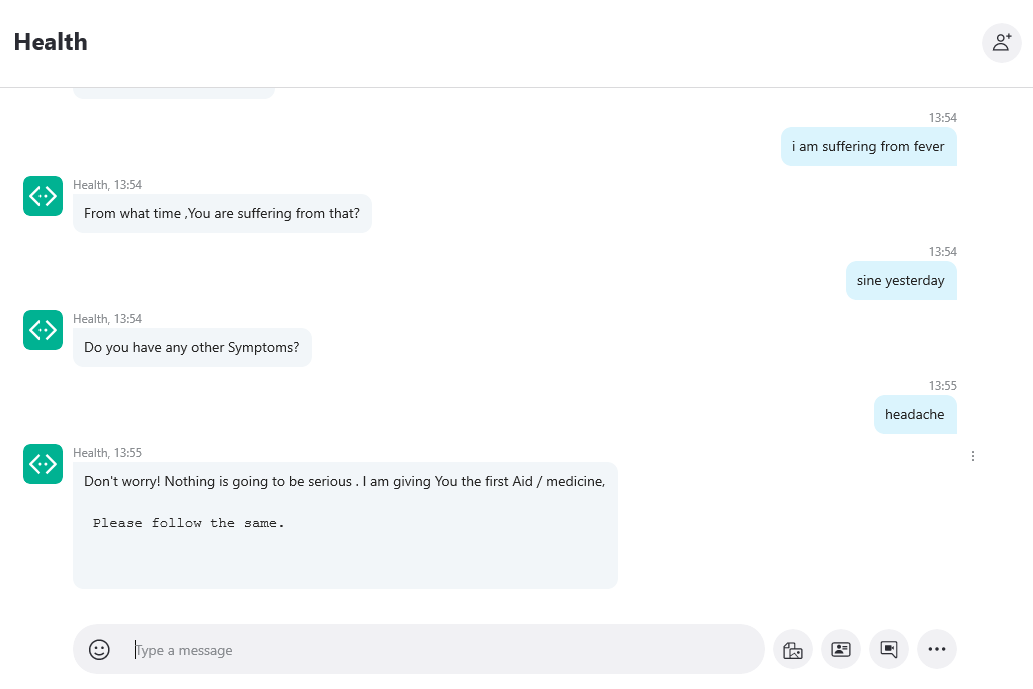
The chatbot features involve a quick identification of the patient’s symptoms to issue an instant medical prescription followed by “appointment scheduling” with enlisted doctors.
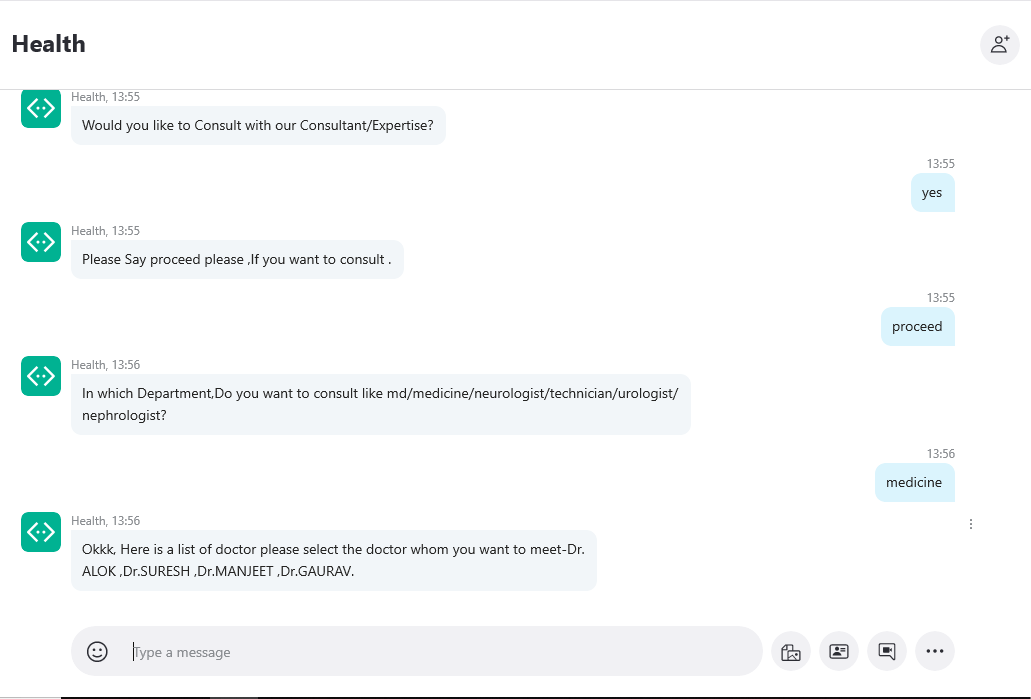
In the face of healthcare infrastructures grappling with limited manpower, DialogFlow emerges as an effective and efficient way to provide seamless healthcare services.
Also read- Building Healthcare Chatbots for COVID-19 Awareness and Diagnosis
2) Amazon Lex Chatbot Development
Number second on our list is an AWS product, Amazon Lex. Similar to other chatbot development frameworks, Lex requires minimal coding efforts and knowledge to build a functional chatbot while engaging users with meaningful responses.
The USP is that Lex works on deep learning technology incorporating Automatic Speech Recognition (ASR), and NLU APIs to understand and respond to inputs.
With the ability to scale chatbot structures, Lex facilitates serverless architectures for businesses to reduce operational costs and complexity significantly.
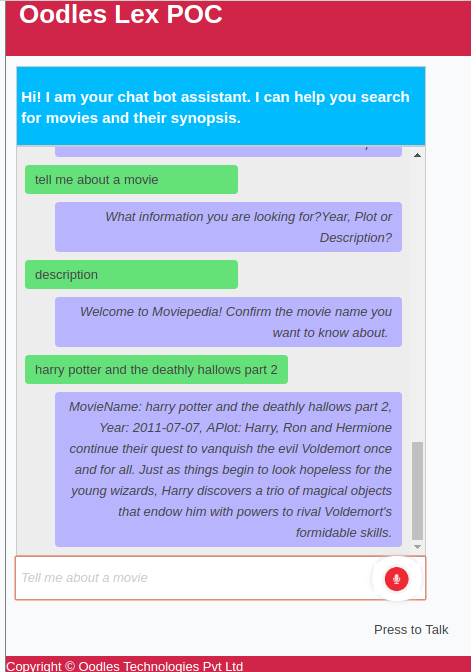
The chatbot development team at Oodles AI has hand-on experience in deploying Amazon Lex framework to build text and voice-controlled assistants for film, education, eCommerce, and other sectors.
Also read- How Banking Chatbots are Transforming Financial Services
3) IBM Watson Assistant
Touted as one of the industry-leading conversational AI technology, IBM Watson facilitates the development of smart AI assistants across channels and applications. Much similar to Google’s DialogFlow, IBM Watson provides a simple resource guide including intents, entities, and dialog to build conversational interfaces.
Watson eases the burden of enterprises to create chatbot scripts from scratch by simply modifying pre-defined useful use cases and examples.
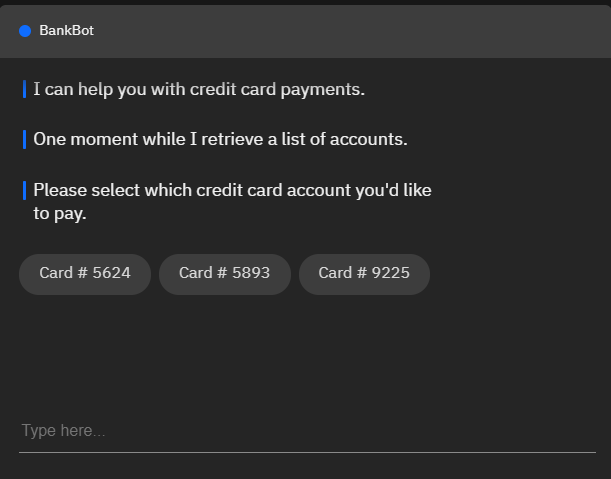
Here are the reasons why Watson becomes an ideal choice for enterprise chatbot needs-
a) The fastest configuration supported by ready-to-use user intents, entities, and natural language data
b) An intuitive testing experience to fill the gaps, and
c) Highly comprehensible conversation flow to understand intents and responses.
Oodles’ chatbot development team highly recommends IBM Watson as a chatbot development framework that gives enterprises an edge over tedious and complex chatbot development cycles.
Read more- Watson Vs Dialogflow Vs Lex: Analyzing Chatbot Frameworks
4) RASA
RASA is an emerging, open-source, and completely free chatbot development framework suitable for handling small-scale and well-defined chatbot projects. As compared to DialogFlow and IBM Watson, RASA employs a longer and more complex configuration.
With the support of interactive documentation, RASA enables developers to play with the Python code to fetch customized results in real-time.
Being in its embryonic stage, RASA is a nascent chatbot development framework with a mix of pros and cons including-
a) A cost-effective chatbot development framework
b) Built on Python, NLP, and machine learning techniques
c) Unlimited facility for new intent generation
d) A complex and difficult to implement configuration, and
e) Uses a lot of computer memory
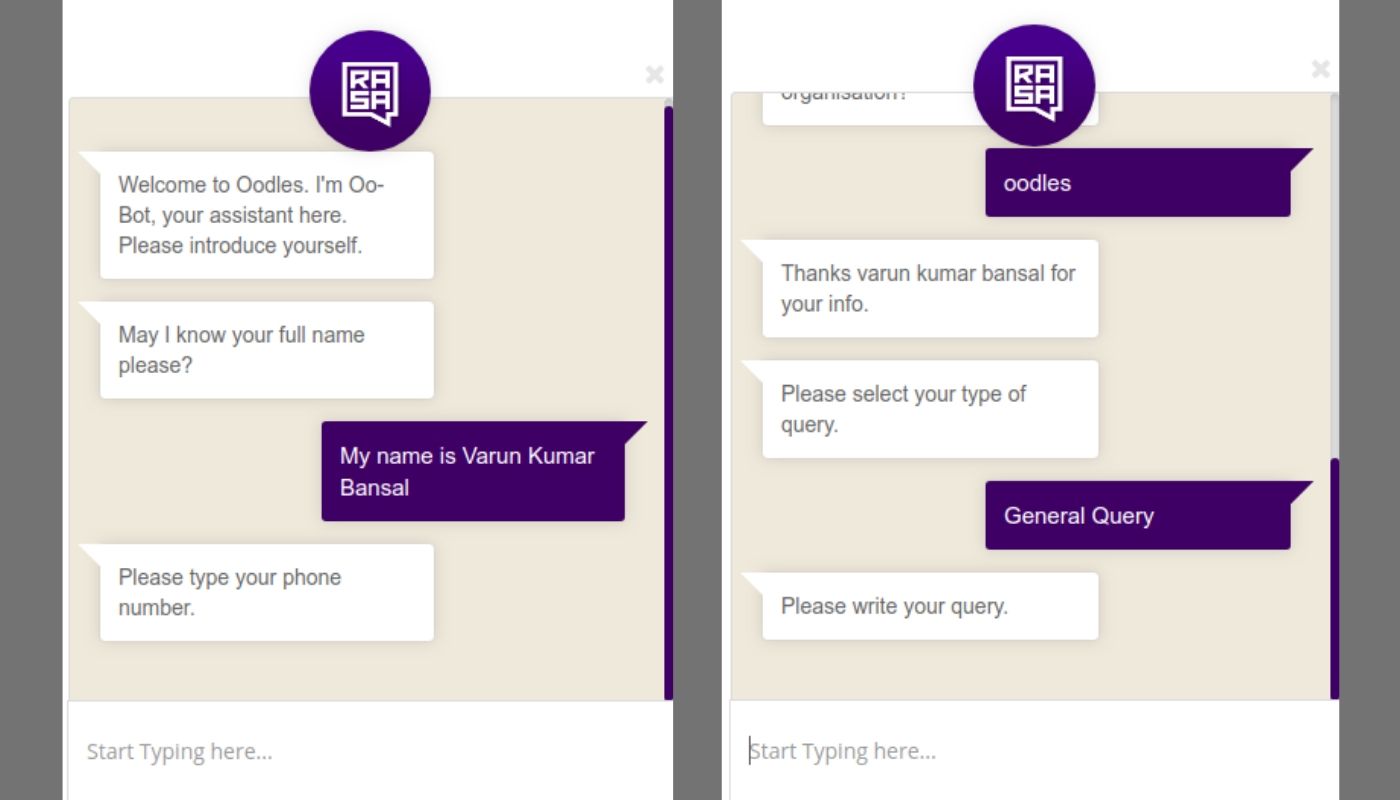
The Oodles AI team built an internal data management system powered by the RASA framework to assist our employees in accessing files and resolving quick queries.
Also read- Social Media Chatbot Development & Integration: Enhancing Customer Relations
5) Wit.AI
The last on our list is yet another machine learning-based chatbot framework, Wit.ai that is developed by Facebook. NLP and NLU algorithms are two major building blocks of Wit. ai making it a robust and efficient chatbot development framework. Instead of the common “intent-entity” terminology, Wit.ai employs- ‘user says’, ‘bot sends’, ‘jump’, and ‘bot excuses’ development cycle.
Being an open-source framework, Wit.ai offers a guided and exemplified ecosystem for developers to build conversational agents.
With Oodles AI, you can easily deploy Wit.ai to build omnichannel chatbots and virtual assistants across the web, wearable gadgets, and other voice-controlled devices.
Team up with Oodles AI experts to enhance your customer experience with dynamic chatbot development frameworks and services.



